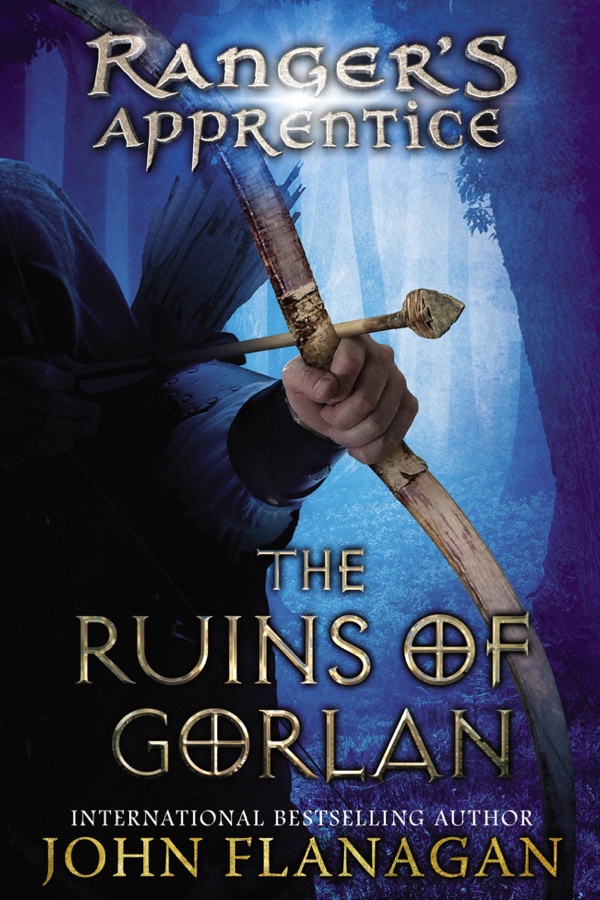In the years following the defeat and exile of the evil Morgarath, a young man discovers who he is, and the important role he will play in the world. The Ruins of Gorlan, Book I of John Flanagan’s popular Ranger’s Apprentice series, follows Will, an orphaned ward of the Castle Redmont, as he and several of his friends cross over from childhood to youth. In Araluen, youth is a time of apprenticeship for adulthood, and that means taking on challenging and meaningful duties. In the course of the story, Will not only learns who he is, but does so by practicing the virtues of perseverance, obedience, humility, gratitude, and courage.
As the story begins, Will anxiously awaits Choosing Day, the day when the Craftmasters select their apprentices from among the castle wards. Not to be selected is to be doomed to work on the farms, which the book portrays as meaningless drudgery, but Will has no obvious prospects for apprenticeship. His only real desire is to be a warrior, as he imagines his mysterious father was, but his small and wiry frame make that increasingly unlikely. His worst fears seem to be realized when no Craftmaster will take him, but, as the series’ title suggests, there’s one more option on the table. It doesn’t give much away to say that Will gets a crack at becoming an apprentice to the mysterious and grim-faced Ranger Halt, but it’s awfully fun to read about how this comes about.
Equally interesting are the details of Will’s training, which includes stealth, practicing with a bow and arrow and with throwing knives, and horseback riding. Halt also saddles him with an ample load of chores, further reinforcing the theme of duty that runs through this story. Will laments internally, like any adolescent, but he is never defiant. We are given just enough training detail to keep the story interesting, and to make Will’s growth believable. By the time Will faces real danger, he is ready.
The book’s major subplot concerns the evolution of Horace, a fellow castle ward who was selected for Battleschool at the same time Will was rejected. Horace is a natural warrior who is violently bullied and abused by upper classmen who envy him. The matter is brought to a satisfying and just resolution, and makes for great discussion material.
On the whole, there is a lot to praise in this first installment of Ranger’s Apprentice. The story is exciting, and populated by well-drawn characters with clear motives. The theme of self-discovery through duty is well-realized, and is a welcome counterpoint to the much more common theme of self-discovery through rebellion. In this book, good guys are not men of attitude, they are men (and women) of action. The story is also refreshingly masculine, praising boys in their roles as fighters, leaders, risk-takers, and servants. The story’s women are strong and capable in their own right, and yet they affirm, encourage, and congratulate the masculinity of the male characters. The plot is simple, but exciting, and the book sets up its successors well.
There are a few things to criticize. First, the book portrays agrarian life as dull and purgatorial, and portrays farmers and “locals” in general as a fairly stupid, forgettable lot. Not only does this engender a snobbish attitude toward the hard work that sustains civilizations, but it departs from the book’s own interest in the cultural identities and duties of each of its major players. While certain scenes do suggest some kind of peasant culture—music, festivals, etc.,— the narrative never connects this culture to the people it elsewhere suggests are complete dullards. A second criticism: there is a fairly major plot hole concerning fire near the end of the book. See if you can spot it!
Aside from these minor complaints, I recommend this book unreservedly to grade school boys and girls ages eight and above. Readers should be aware that there are a few violent scenes, and a few instances of the word “damn”, but the former make for good conversation about bullying, and the latter seem in keeping with the characters uttering them, given the situations in which they occur. There is nothing truly problematic about this first installment, and there’s much to praise. Whether the succeeding volumes continue to carry this standard is a matter to be explored in future reviews. Against the backdrop of a literary world that holds up attitude and angst as the path to maturity, The Ruins of Gorlanrecommends apprenticeship. Even Halt would approve.
Things to discuss…
- Between being a knight and being a ranger, which would you choose, and why? (Assume you knew you’d make it through the apprenticeship period.)
- Toward the end, Will had to choose between two very desirable things. In life, it’s not always easy to decide among alternatives where both are good. How should a reasonable person ensure he is making the best choice?
- Why is Halt so grim and serious? When adults are serious, do you tend to assume they are mean, unpleasant, or “against you”?
- Can you think of a more efficient way Halt might have resolved the situation with the Kalkara?
- Think of Horace’s situation. What is bullying, really? Is there a difference between someone “messing with you” and someone bullying you? Name two reasons Horace did not tell anyone about what was happening. How far can you go in defending yourself against someone who is using violence against you? Where do you draw the line between the use of force in legitimate self-defense, force used in punishment, and force used in pure revenge? Why is revenge wrong? Why is revenge not the same thing as punishment?



